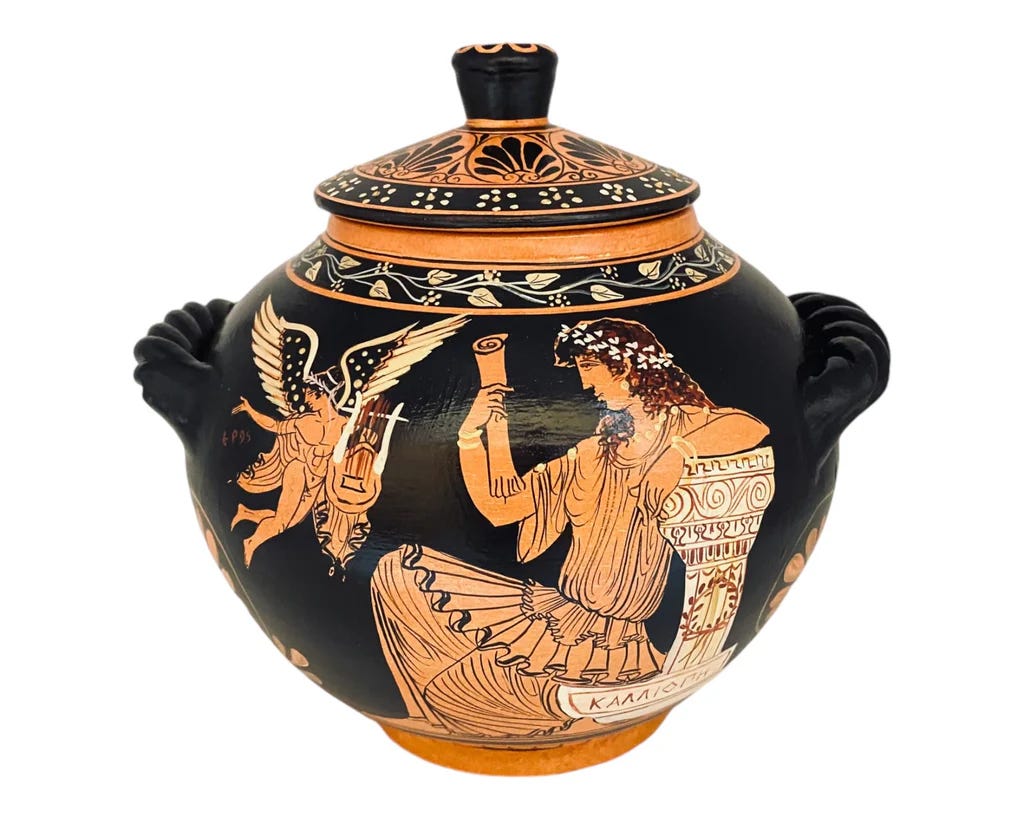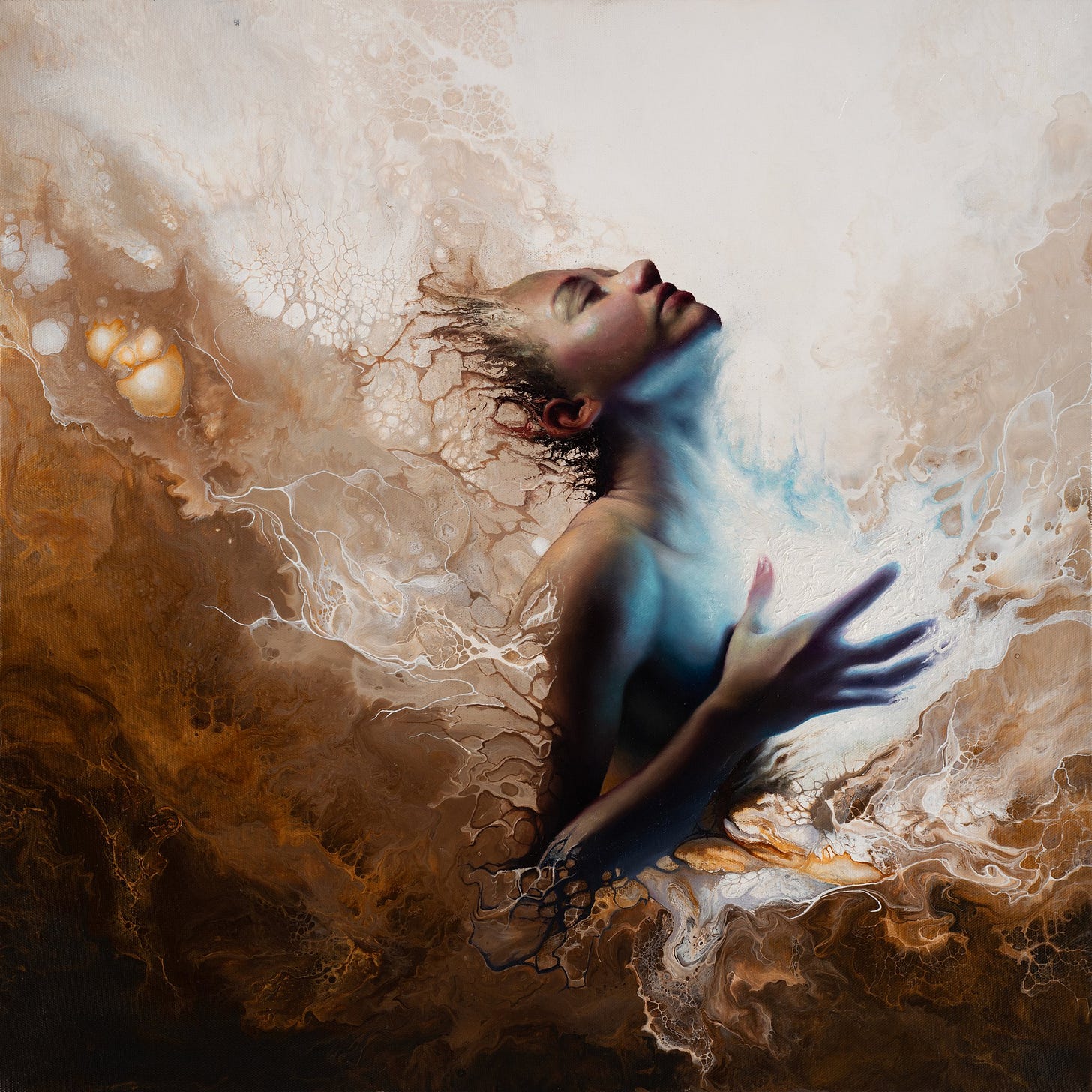From Poetry to Pottery: When Making Becomes Magic
Flipping a tire is pure poiesis—or not—depending on what’s going on in my mind.
We have another post today by Eugene Terekhin, the man and the mind behind the publication Philosophy of Language.
Philologist, philosopher, translator, and author Eugene Terekhin explores in Philosophy of Language the secret literary theory behind the fantasy worlds of J.R.R. Tolkien, C.S. Lewis, and Owen Barfield who believed that when words are spoken aright, they invoke the invisible reality from behind the veil of the world. He is a voice of much needed wisdom in our day and age, when so much of true art is being eviscerated and trivialized.
He is the author of the following books and I have read three of his books and highly recommend them:
and The New Exodus: Escaping One Man’s War
We urge you to subscribe to Eugene’s insight-packed newsletter filled with the wisdom of the inklings, poets, philosophers, writers and great thinkers by clicking the button below:
This article originally appeared on Philosophy of Language here. I’m sharing it with The BoldBrush Letter because in it, Eugene has explored an important topic, perhaps the most important topic for creative people.
Editor’s Note: In two days, this post will be locked and is available only to paid members because we don’t want this duplicate content on the open web in a way that might draw traffic away from Eugene’s original post. If you are not a BoldBrush paid subscriber, you can still read the entire post here.
From Poetry to Pottery: When Making Becomes Magic
What does poetry have to do with production? Everything. In Greek, the word “poiesis” from which we get “poetry” means “making.” In my mind’s eye, I can picture an ancient Greek working in his backyard and saying, “ποιέω (poiéō), I make.”
But why would the ancient Greeks use the same word for making pottery and for making poetry? I guess because they felt that it was intrinsically the same process. To make a poem, you must align yourself with God. You can’t speak anything truly worth hearing until you transcend your humanity and receive words from above.
To make a good pot, you must do the same. You can’t shape a vessel worth beholding until you align yourself with the divine. Sure, you can craft something by your own effort, but it won’t be a pot worth keeping. If you appreciate the beauty of ancient pottery, you know exactly what I mean.
Poetry is how you produce anything. To produce a moving metaphor one must receive the gift of speech from Mercury himself. To craft a cup, one must be in touch with the God who makes our cup overflow. All true things are born from this spiritual communion with the invisible.
When we separate production from poetry, we are not moved by what we do anymore. We can no longer make anything worth having.
Flipping a tire is pure poiesis—or not—depending on what’s going on in my mind. This wheel I am flipping is more than a mechanism; it moves me not just horizontally from point A to point B but also vertically—from the ordinary to the extraordinary— if it has proper alignment (both literally and metaphorically).
Poetry as pure making occurs when we transcend the moment in time and commune with the invisible Spirit in what we do. This point in time becomes electrified—with the magic of Zeus himself.
In spiritual terms, Zeus is salvaged time. His mother Rhea saved him from being swallowed by his father Cronus—Father Time. By escaping chronological time, Zeus became timeless. He represents those moments we rescue from being consumed by time. These moments become charged—alive with poetry.
That’s why Zeus’s signature weapon is the lightning bolt. To transcend time is to be electrified. You’ve touched divine electricity; you’re moved by an invisible current. Poetry happens when we break through time and infuse the task at hand with that divine spark.
At this moment, true magic happens. It begins with a sparkle in your eyes and an electrifying touch of your hands, moved by the invisible divine currents. Like Zeus, you become king—you reign over what you do. You are a poet. A creator of worlds. A maker.
Then, everything you do begins to sparkle as well. Whether you are baking cakes, writing code, or teaching kids — you become a conduit of divine electricity and a mover of all things.
Subscribe to Philosophy of Language
By Eugene Terekhin
A place for the outlaws of poetry and the written word. One of the aims of Poetic Outlaws is to revive the Promethean fire of the dead poets and artists in an attempt, however futile, to elevate the modern soul out of the sludge of the status quo.
Save Money on a Squarespace Site for your Art
ARTFUL SQUARESPACE by FASO Loves Christopher Remmer’s paintings!
See More of Christopher Remmer’s art by clicking here.
Wouldn’t You Love to work with a Squarespace website hosting company that actually promotes their artists?
As you can see, at Artful Squarespace (by FASO), we actually do, and,
we are the only website host we know of that does.
Click the button below to start working
with a Squarespace art website host that actually cares about art.
If you already have a Squarespace site, you can move it to Artful Squarespace with no changes, you’ll likely save money and you can see your art promoted in our newsletters just like Christopher Remmers. If you want a new Squarespace site optimized for art, we can help you with that too!




Brilliant!